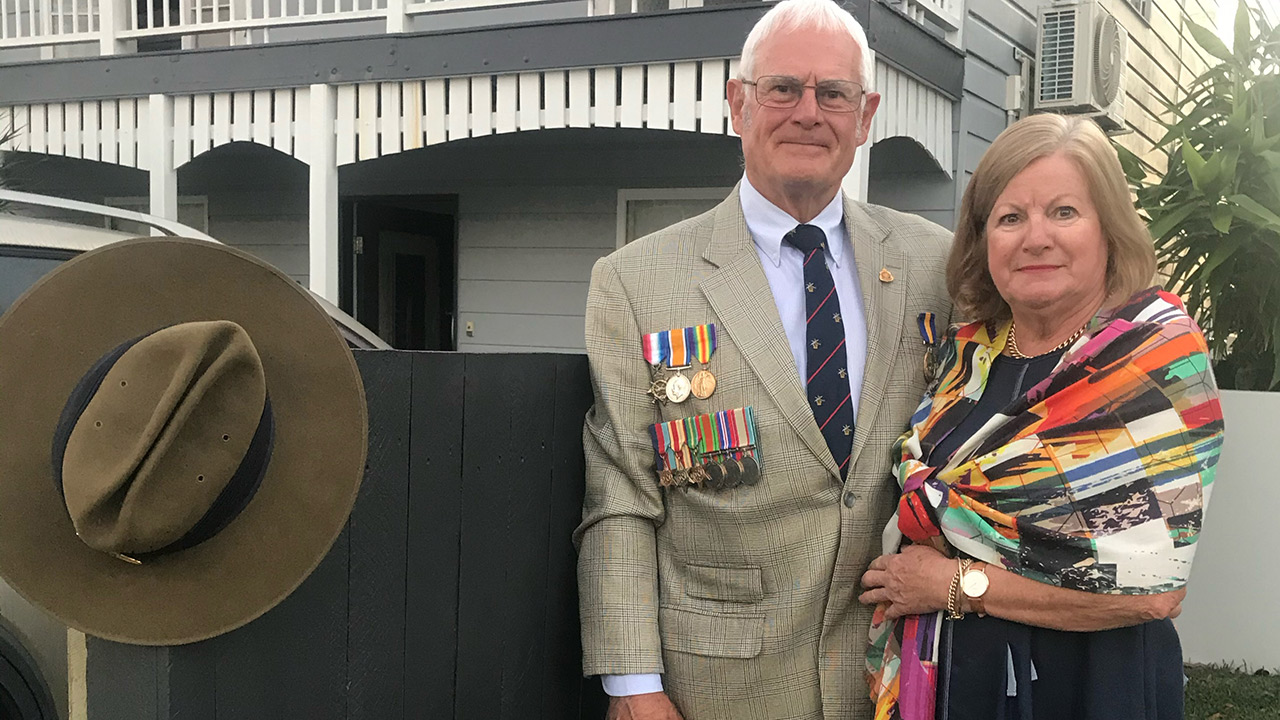John Boland’s battle against prostate cancer and the urgent need for reform

John Boland, a 74-year-old retired Navy Reserve Lieutenant Commander, found himself at a crossroads – a place where hope and despair often meet in the lives of those battling life-threatening illnesses like prostate cancer.
Diagnosed five years ago, John’s journey has been a relentless fight against a disease that, despite medical advancements, still claims the lives of 10 men in Australia every day.
After undergoing surgery and 37 rounds of radiation therapy, John’s battle was far from over. His PSA (Prostate-Specific Antigen) levels, an indicator of prostate cancer activity, were not dropping sufficiently, signalling that the fight was only getting tougher. It was then that John was introduced to a groundbreaking treatment: Lutetium-177 PSMA therapy (LuPSMA), a targeted radionuclide therapy with pinpoint accuracy to attack cancer cells.
This innovative treatment offered a glimmer of hope, a chance to strike at the heart of the disease that had disrupted his life. But there was a catch – the cost. Each round of LuPSMA treatment costs $10,000, and while some patients may require up to eight rounds, John’s doctors recommended two based on his response. Even so, the financial burden was immense, forcing John to dip into his superannuation, ultimately spending $60,000 on the treatment that was not covered by insurance.
Despite the financial strain, the results were nothing short of miraculous. After just the first round, John’s PSA levels dropped by a staggering 95%. After the second, they fell to nearly zero. The treatment had not only attacked the cancer but had also restored his quality of life, allowing him to once again enjoy the simple pleasures – time with family, daily activities and even golf. It was a victory that brought renewed hope and confidence for the future, a victory that made the $60,000 investment worth every cent.
“My case was remarkably successful after the second treatment, which are eight weeks apart, after the scan had no cancer, and my PSA was effective to zero. So it was a reliable result for me and a huge boost, but unfortunately, they're $10,000 a time, and you can require up to eight treatments,” says John. “Fortunately we were able to fund it from our superannuation pension account, the $20,000, but I imagine that a lot of people, they can’t find that $20,000.”
But John’s story, while inspiring, also highlights a grim reality: many Australians are not as fortunate. The LuPSMA treatment that worked so well for John remains out of reach for many others due to its prohibitive cost. And this isn’t just an isolated issue; it’s a systemic problem affecting thousands of men across the country.
A new report, the Australian Patient Access Gap Report, has shed light on the alarming delay in the public availability of new medicines in Australia. The report reveals that Australians with life-threatening illnesses are waiting an average of 591 days – more than 18 months – for access to new, potentially life-saving medicines. For some, the wait can be as long as three years. These delays are not just statistics; they represent real people, real lives hanging in the balance.
The Prostate Cancer Foundation of Australia (PCFA), the country’s leading organisation in the fight against prostate cancer, is calling for urgent reform. They argue that the current system, which often requires multiple rounds of review before new treatments are approved for public use, is failing Australians.
PCFA CEO Anne Savage points out that while 10 men die from prostate cancer every day, the approval process for new treatments drags on, leaving patients like John Boland to fend for themselves – often at great financial and emotional cost. “In almost every instance, Australians are being denied access to new medicines that can extend and save their lives, simply because our approval systems have not kept up with the pace of change,” she says.
“In relation to prostate cancer, applications typically undergo two or three rounds of review before achieving a positive recommendation, while 10 men die a day from the disease. It’s simply not good enough.”
John’s story serves as a strong call to action. His successful treatment with LuPSMA is a testament to the power of modern medicine, but it also underscores the urgent need for change. No one should have to choose between their life savings and their life; it’s time for Australia to modernise its pharmaceutical benefits scheme, ensuring that all Australians, regardless of their financial situation, have access to the treatments they need.
As we move forward, the PCFA is urging Australians to take part in initiatives like The Long Run during Prostate Cancer Awareness Month in September, raising awareness and funds to support the fight against this devastating disease.
For John Boland, and for the thousands of others who share his struggle, we must work towards a future where no one is left behind in the fight against cancer.
Image: Courtesy of John Boland.
